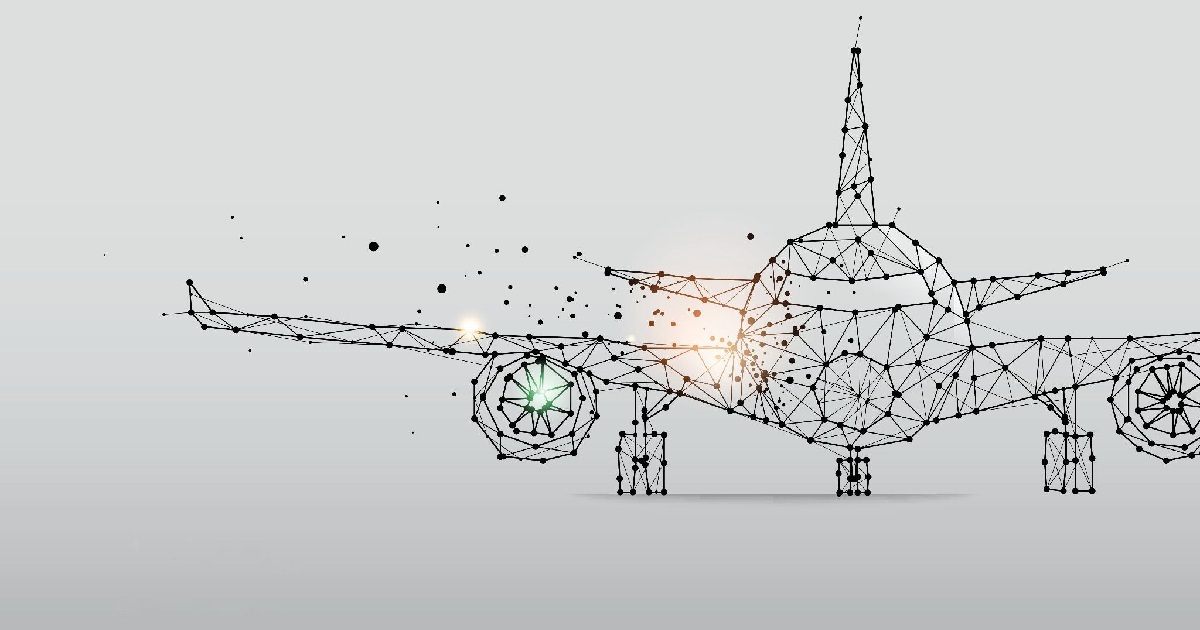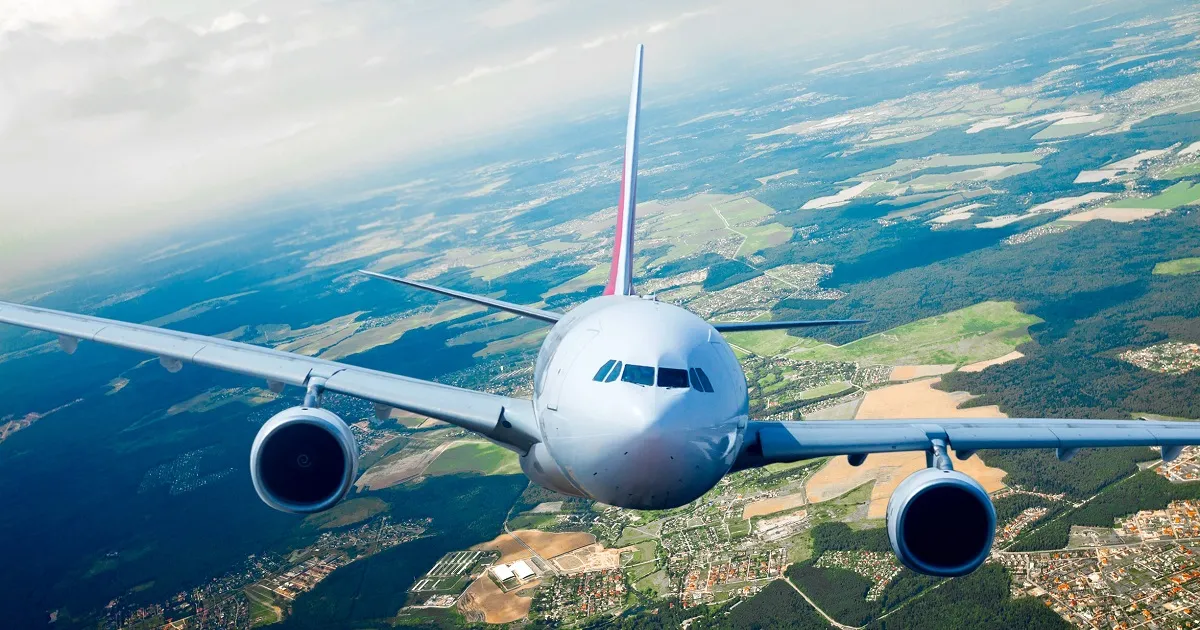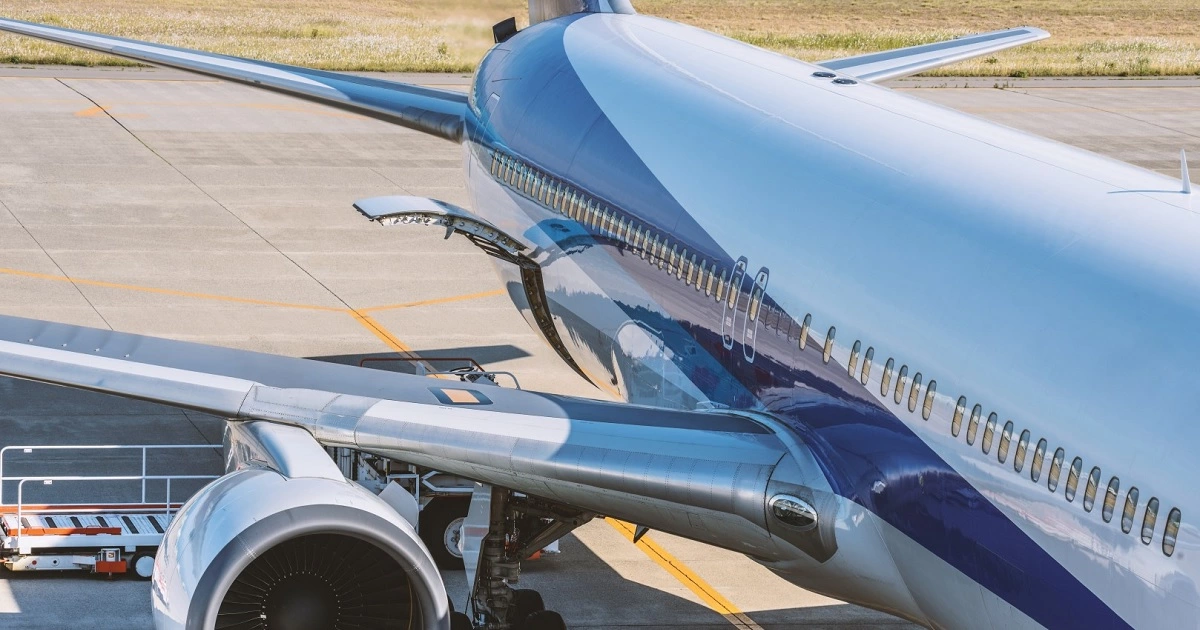
Air Transport
Article | July 6, 2022
Is the aviation industry finally reviving after the devastating 2020? If yes, then what will it show in the next five years?
2020 will be remembered in airline history as the most turbulent year to date. Due to the pandemic, the period brought massive changes in the airline industry—business models and customer behavior globally. As a result, regaining customer confidence and reforming business models have become a critical factor for airlines to uncloud the economic storm and remain a formidable competitor in the years of uncertainty ahead.
Technologies that were being used before the pandemic are now being studied well with vividness. The inclusion of new technologies is onboarding, which somehow sets up new aviation industry trends. These will be a timely solution to fight the ongoing economic instability and challenges pouring in.
To increase safety notions, boost business confidence, customer trust, and making airline operations more efficient, adaptability and high intelligent business outline is the new blueprint for survival and growth to happen in the next five years.
Drivers of Emerging Trends
The intention of emerging trends in the airline industry is from weak signals from a wide range of fields, including threats, technology, and potentiality to function remotely, impacting the industry’s all-over operational dynamics.
The trends are setting primarily due to the winds of change pounding the industry from different directions. Be it from technological, demographical to environmental shifts. Understanding the potential business landscape is therefore critical to ensure what the future of air travel will be.
During a study conducted by IATA, business leaders in the airline industry identified the most critical drivers of emerging trends that were probable to have an influential impact by 2035. Also, these drivers suggest bringing more and more opportunities in business models and operational models of the industry beyond 2020.
Therefore, it is the hope of all airline companies (you) that how you will be affected by future developments and how the entire business landscape will be changed by the trends discussed here. So, take advantage of the opportunities that some of these trends may give rise to.
Leading Aviation Trends to Expect
Cybersecurity
Today, the importance of cybersecurity technology in the airline industry is rising. Airlines, now being aware of the downsides of using traditional operational models, is becoming more concerned about delivering high-performance using technology.
With having well-operated cybersecurity functionality onboard, airlines are focusing on becoming more agile to scale their infrastructure. Also, in the next five years, increased connectivity between the real and virtual world, including robots, will eventually end the boundaries between virtual and physical security.
IATA’s research with the London School of Economics found that the aviation industry will invest $15 billion by 2035, thanks to connected operations.
Moreover, as cybersecurity matures, it will be seen as the most secure and scalable way of operating organizational data, and processing will be easier than before. You will have your airline documents within a secured centralized database, which will reduce silos of information that pose security risks and threats.
Biometric Technology
The pandemic, apart from bringing challenges, has helped businesses to leverage influential ideas to foster. Yes, it has made the airline industry emphasize the high usage of biometrics as a must-have technology stack. Biometrics is on the rise that can reinforce the idea of touchless operations in airports.
The airline industry forecast has laid primary focus on self-service. However, as the blend of software and technology is more in demand, applications will be more defined than before in the coming five years. The technology will allow automated checks, self-service systems using devices like mobile, tablets, and others and cover iris, face recognition, fingerprint, which will even work with PPE masks.
The industry is already making great experiences that allow businesses to conduct frictionless operations using biometric software and hardware. For example, in November 2020, Star Alliance introduced a novel interoperable biometric identity scanner platform for screening employees and passengers at airports.
AI & Big Data
Artificial Intelligence (AI) welcomed massive opportunities in transforming aviation business operations amid the ongoing crisis. This technology in the airline industry has immensely aided companies in collecting data and forming a virtual assistance environment for queries, enhanced logistics operation, security, and self-services with highly augmented reality.
A market survey reveals that 97.2% of the aviation companies are installing big data and AI together. In fact, 76.5% of airline companies are gaining the value of data collection with the help of big data and AI. Source: resources.vistair.com
AI is also being set up in terms of safety improvement initiatives and potential safety issues. In this case, Southwest Airlines partnered with NASA to build an automated system capable of preventing potential threats and breaches by using machine-learning algorithms.
Green Technology
Green technology is one of the upcoming trends in the airline industry in the next five years. The prediction is it will make novel changes in the airline industry from various directions like the workforce, shares, stakeholders, and governments.
In the green tech concept, it is the generational shift and advancement that may head the change using new tools. These would bring in notable opportunities beyond 2021.
If you observe, the pandemic has driven the agenda of sustainability in terms of climatic conditions. And you will be surprised to know that aviation has already put up a serious concern in its fossil fuel usage by 2035. Even aircraft manufacturers have begun their journey with green technology.
To clarify this, the main objective of sustainable development for the coming years is decarbonization and green technology investment.
Aviation companies like Japan Airlines and IAG are investing to bring net-zero carbon emissions by 2050, and by 2045, they aim to achieve carbon neutrality. And these, of course, are happening quickly due to digitalization.
Expecting a Sustainable ‘DIGI-TECH’ Future
As the pandemic brought downturn and slowdown in the airline industry, they have prioritized investing in digital by recognizing its importance and the optimum necessity. It is because it will be one of the significant ways for you to bring customers back and show your potential to endeavor services in a changing industry landscape.
So, technology and digital together must be supported that respects businesses’ need to invest in multiple areas of functionality. On the other side, revenue management goals also need to be focused on to gain success among competitors. And following the path of trending digital platforms will make you victorious over revenue management performance objectives. In this way, you will be in the skin of the game and would observe your company rising through the challenges over the coming years.
Frequently Asked Questions
What are the topmost technologies that will define aviation beyond 2021?
The technologies—3D printing in manufacturing, automation, and robotics are the topmost that will define how the aviation industry will be beyond 2021.
How is technology being used in aviation?
Airline operators use technology to market their services and products, advancing their software to leverage functionalities like biometrics, automation, cybersecurity, AI, big data, and more. Also, technology is being used to make safer airport operations like touchless checks to make safe for passengers.
Will the aviation industry overcome challenges?
Up until now, globally, the aviation industry is maintaining positive growth, despite prevailing challenges due to COVID-19. Technologically, it seems that the industry will foster slowly and gradually. Yet, there is sluggish growth economically due to high jet fuel prices.
{
"@context": "https://schema.org",
"@type": "FAQPage",
"mainEntity": [{
"@type": "Question",
"name": "What are the topmost technologies that will define aviation beyond 2021?",
"acceptedAnswer": {
"@type": "Answer",
"text": "The technologies—3D printing in manufacturing, automation, and robotics are the topmost that will define how the aviation industry will be beyond 2021."
}
},{
"@type": "Question",
"name": "How is technology being used in aviation?",
"acceptedAnswer": {
"@type": "Answer",
"text": "Airline operators use technology to market their services and products, advancing their software to leverage functionalities like biometrics, automation, cybersecurity, AI, big data, and more. Also, technology is being used to make safer airport operations like touchless checks to make safe for passengers."
}
},{
"@type": "Question",
"name": "Will the aviation industry overcome challenges?",
"acceptedAnswer": {
"@type": "Answer",
"text": "Up until now, globally, the aviation industry is maintaining positive growth, despite prevailing challenges due to COVID-19. Technologically, it seems that the industry will foster slowly and gradually. Yet, there is sluggish growth economically due to high jet fuel prices."
}
}]
}
Read More

Aviation Technology
Article | June 2, 2022
DataBridge recently released a new market research analysis on AI in aviation, and the findings are promising. The aviation industry has relied on artificial intelligence (AI) for years. The technology has assisted pilots through machine learning algorithms to collect flight data about altitudes, air traffic management, weather, and route distance. It has enabled them to optimize fuel usage and reduce fuel costs. And now, it is going further.
AI has been cascading into other areas of aviation. Here are some trends to note from the “Global Artificial Intelligence in Aviation Market” study.
Benefitting Ground Operations
AI is extensively used in real-time support systems and air traffic control. From automated baggage check-in to facial recognition, it is powering several ground operations. These functions contribute heavily to maximizing resources, reducing labor costs, and enhancing seamlessness across different processes.
Improving Performance and Processes with Machine Learning (ML)
The emergence of AI in aviation is thanks to a surge of capital investments by key aviation players. Cloud computing is being used by many organizations as a way to consolidate processes and deal with complexity better.
Impacting How Planes will be Piloted
AI will considerably impact the future of piloting as we know it. Building on Airbus’ first ever takeoff, landing and taxi using vision-based AI in 2020, prominent aerospace tech firms continue to work on self-piloting planes or passenger autonomous aerial vehicles (AV) that will employ AI-powered intelligent navigation to fly.
Improving Efficiency and Accuracy for Manual Processes
According to aviation experts, ML digital assistants are able to process massive volumes of historical data in order to support ground staff and pilots alike. With AI’s capabilities of enabling elusive insights into patterns and complexities of data, the technology is considered ideal for aviation, where there is no room for errors.
The Path Ahead
The COVID-19 pandemic highlighted the importance of new technologies in pushing the envelope and innovating solutions. The evolution of technology will only propel the adoption of AI further into the aviation industry. With multiple use cases and brilliant results from the use of AI, the aviation industry is all set for a digital transformation fuelled by data, machine learning and precision
Read More

Business Aviation
Article | January 28, 2022
Airplane travel is one of the most convenient means of transportation. Consequently, air travel is growing, and aircraft need to be more efficient. Furthermore, in the aftermath of the pandemic, the aviation industry appears to be committed to ensuring a sustainable airflight future. So, for this, aircraft need to be more efficient in production costs and fuel consumption.
An aircraft design depends on three of the most critical aspects. The first is the factor of reliability. Aviation is the only industry where it is impossible to overlook, rectify, or investigate a failed flight mechanism on the spot. The second factor is the need to minimize the weight and volume of its components to withstand load and fluctuating temperatures. And, the third factor is that it shows extreme concern from an environmental perspective. Temperatures on the ground can reach 60 °C and even -80 °C in the stratosphere, with supersonic aircraft reaching temperatures of over 200 °C.
As a result of these factors, the aircraft lubrication system and its requirements are critical. From an economic perspective, servicing and maintenance are a significant part of airlines' expenses after the purchase. In addition, the replacement of parts can cause airplanes to remain grounded for an extended period. Such circumstances can lead to a loss of time and money simultaneously.
From a safety aspect, failures at every level should be avoided. Failures like the shutdown of engines or breakage of engine parts can lead to aircraft failures or even crashes. So, by knowing all these issues around air travel, you can easily understand the interest in aircraft engine oil.
An Innovative Lubrication System for Aircraft Engine
Aircraft turbines revolve at up to 18,000 rpm (revolutions per minute). Due to this, internal temperatures can rise compared to the ambient temperature outside. So, aviation engines need an efficient oil-based lubricant to less pollute the environment and sustain long-distance air travel.
Recently, researchers in the EU-funded ELUBSYS project developed a novel way to use specified aircraft engine oil to promote efficiency and reliability. For this, SAF (Sustainable Aviation Fuel) is in high demand. Moreover, the project's innovative oil production will also help reduce an airline’s operating and maintenance costs. In this way, Europe’s aircraft manufacturers are way ahead in supporting future aircraft engine development.
“Aircraft engine turbines rotate at a very high speed with the help of the classic rubberized oil-seals used in the aircraft engine. The extremes of temperature and friction involved would destroy them. Yet aircraft engines need to stay lubricated.”
-Vincent Thomas of Techspace Aero in Belgium
Apart from this, the piston engine looks promising for the aviation piston engine industry. However, it seems like a piston engine holds an optimistic future in fuel economy. Now, with the inclusion of piston engines, there is more importance to using piston engine oil in the lubrication system for an aircraft engine.
So, how piston engine will be the game-changer for aircraft?
Piston Engine—A Game-Changer in Fuel Economy
Numerous aviation firms are developing a new type of internal combustion engine. Such engines promise a notable boost in fuel economy while also plummeting greenhouse gas emissions. In addition, start-ups like EcoMotors, Achates Power, and Pinnacle Engines are building variations on piston engines with the help of specific piston engine oil.
The engines serve as combustion chambers where fuel is ignited. That makes engines lighter in weight and faster in their operations with greater power density. In this way, piston engines result in less energy waste and thus operate more efficiently.
“The technology is worthwhile. However, it is a completely different concept compared to conventional engines,”
- Dean Tomazic, Vice President of FEV in Auburn.
There are more success stories from the aviation piston engine industry. These stories predict that, indeed, aviation is going through a significant transformation.
Another significant achievement comes from Pinnacle, based in San Carlos, Calif. It is developing a four-stroke, gasoline opposed-piston engine. The company’s founder, Monty Cleeves, invented a sleeve valve that ensures energy is used for propulsion instead of getting wasted after converting into heat.
Functions of the Lubrication System for Aircraft Engine Oils
What are the significant functions of lubricants in aviation oils and engines?
It is the function that realizes the importance of things. Isn’t it? So, to realize the importance of aircraft engine oils, it’s crucial to show the potential of the aircraft lubrication systems.
1 Friction and Wear Reduction
Lubricants reduce friction and wear in an aviation engine. The aircraft lubrication system deals with cooling, sealing, clearing, and fighting corrosion and rust in the engine.
Airplanes that are used seldom need the thorough protection from rust and corrosion that good aviation oils can provide. Also, frequently flying airplanes need lubricants for smooth engine operations and functions to avoid failures.
2 Acts as a Cooling Agent
But it is critical to use good aviation oils as lubricants. Oil is a heat-transform medium. Thus, a suitable oil should be used so that lubricants can keep the engine cool and smooth.
3 A life Saver of Aircraft Engines
Lubricants help in extending the life span of an aircraft engine. If an aircraft uses good aviation oil, for example, SAF, biofuels, and more, then there are fewer chances of any engine repairs. In this case, piston engines are the best fit for aircraft with high demand. Piston engines use highly lubricant piston engine oils, which increase the longevity of aviation engines.
Let’s look at some key takeaways from the market study of aircraft engine oil.
Aircraft Engine Oil: Key Takeaways from its Market Study
Commercial planes and business jets will likely witness high aircraft lubricant oil sales.
According to IATA, mineral oil demand is expected to rise by 25% by 2030.
Bio-based oils will dominate the aviation industry in response to soaring environmental concerns.
Maintenance, repair, and operations (MRO) activities will emerge as crucial parts of aviation to drive the global aviation lubricant market.
Lastly, what’s understood is that aircraft engine oil is the engine's lifeblood. Thus, the engine must function efficiently to encompass the length between overhauls.
Frequently Asked Questions
What does engine oil do in an aircraft?
Engine oil functions as a coolant. Up to 40% of an aircraft’s cooling comes from engine oil. Oil creates a seal between the piston rings, which reduces wear and friction andprovides better compression with increased fuel efficiency.
How is the engine oil lubricated?
Engine oil is lubricated with seals using air, which holds back the oil. Air and oil need to be separated. The air eventually vents out in the form of heat. That is why good oil is necessary for aircraft for lubrication.
What are the essential functions of engine oil?
The essential functions of engine oil are:
Minimizes friction and reduce wear
Cleans the engine
Transfers heat
Prevents corrosion
Forms a seal
Cools the engine parts
Read More

Air Transport
Article | July 6, 2022
Flying is changing, and so is the future of piloting. With technological advancements across the aviation industry, one can only anticipate what’s in store for the future of piloting. The battle between automation and learning skills that automation can easily take over is coming to a head. As airplane engineering matures, the aviation industry isn’t far from seeing a day when pilots who have undergone training on electric trainers require a license endorsement to fly a piston-powered aircraft.
Goodbye, Manual Flying
Airplanes are becoming downright easier to fly. Consider how most pilots today would never be able to fly the aircraft that their seniors trained in. According to experts, piloting skills will put more emphasis on the efficient use of airspace systems instead of directing and maneuvering the aircraft.
Decoding Airplane Information
Traditionally, a pilot’s primary task was to gather and decode the information he received through the aircraft’s systems. This information was then used to give the pilot an “air picture” which allowed him to get a sense of the air traffic, airspace, and weather. As aircraft technology improves, pilots will no longer need to know how to do this. Instead, the "air picture" will be shown on a screen in front of them.
Final Word
From augmented reality to 3D spatial audio cues, augmentation is happening to aircraft as well as the pilot’s ability to fly them. The evolution of aviation technology will only help transform the mechanics of airplanes, and pilots will no longer need to handle flight control. As augmented reality takes over, future cockpits might not even need to be at the front of the aircraft or have windows. That would be the true test of the future of piloting.
Read More